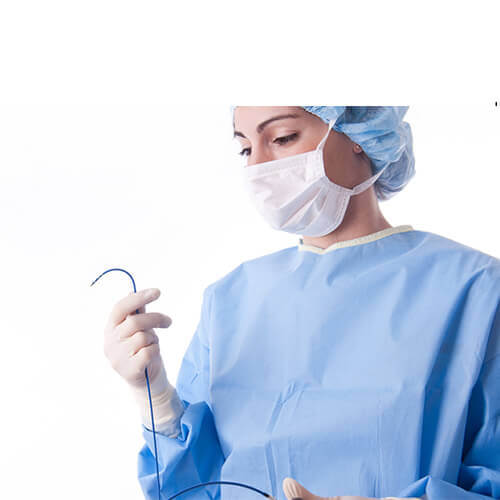CEO of the Month – Jan De Backer, FLUIDDA

FLUIDDA develop proprietary diagnostics for lung diseases, such as asthma, chronic obstructive pulmonary disease (COPD) and lung fibrosis. The technology, called Functional Respiratory Imaging or FRI is a combination of high-resolution CT scans and computer methods that simulate the flow in the lungs.
FRI provides an unparalleled insight into how the lungs of specific patients work. Airways, blood vessels and airflow can be visualised and analysed in great detail. In addition, FRI can determine where inhaled drug particles end up in the lungs of patients. FLUIDDA uses FRI to help pharmaceutical companies develop better drugs for lung diseases, faster and cheaper. Additionally the firm also work with individual physicians to help them to select the most appropriate treatment for specific patients, which is unusual as it requires a more costly trial and error approach not usually adopted by other firms in the industry.
Jan started at the company in 2005 and has since helped the firm to differentiate itself from its competitors by becoming active in the R&D phase of development, where their technology can inform pharmaceutical and biotech companies very quickly whether the compound is worthwhile pursuing.
The firm are also involved in the marketing phase where their visualisations of the mode of action of the drug, based on real patient data, is used to show the added value of the drug or device to doctors, insurance companies as well as being active in clinical practice where the company can leverage the knowledge from the clinical trials to assist the doctor in selecting the most optimal treatment for individual patients based on the patient specific characteristics.
Jan explained the firm’s vision and how he ensures that this is upheld by everyone within the firm.
“My role as CEO has evolved over the years. I started the company ten years ago and at that time the emphasis of the company was mainly on the development of the technology. We had to perform our clinical validation trials and ensure the technology became scalable. Gradually my role became more general management with the focus on international expansion (we opened an office in India in 2010 and in the US in 2012) and developing a vision for sustained growth.
“This vision, nowadays, revolves very much around levering modern day technology to improve the efficiency, including the cost/benefit ratio, of many facets of the healthcare system. This includes drug development, treatment optimization in clinical practice and even patient education. We feel that a system where all stakeholders align around the patient interest is a system with the highest probability of success to improve the efficiency of the healthcare system.
“Communication is key to ensure that everyone in the company is aware of our vision and that they do whatever is needed to support it. Despite a very busy travel schedule I try to keep in touch with the teams in the different locations as much as possible. Every month I update the company, including our directors, on the latest developments. This is good opportunity to either welcome people to the team, congratulate the teams on the performance or to caution for potential threats in the foreseeable future. Our people know that if there is an issue they can always bring it my attention and I will do whatever I can to resolve it.”
Being a technology company in the healthcare industry means being exposed to a number of rapidly changing markets, with regulation, technology and health innovation constantly evolving. Jan described the market and how the changes affected FLUIDDA.
“I strongly believe that we are on the verge of a revolution in healthcare. We see important stakeholders such as governments, patient advocacy groups and a new generation of doctors all converge around implementing new technologies to make the system more efficient. This is largely driven by the budgetary constraints due to the exponential increase in the healthcare costs and the additional challenges in healthcare due to the aging population.
“As a company we have invested greatly in being able to translate, often complex, technology into a format fit for the medical world. We do not expect doctors to become technical experts but we rather make our technology as accessible as possible for the physician. We like to harness the power of modern technology such as high-performance computing and big data and convert that into personalised medicine in collaboration with the medical professionals. FLUIDDA aims to do that in a sustainable manner, which should ensure our position as a leading edge technology partner.”
Overall, Jan made it clear that these changes in the industry, now and in the future, would keep the firm at the very height of innovation.
“This is an exciting time for healthcare. There is a high need to change to keep the system affordable. At the same time, the level of implementation of modern technology (cloud services, home monitoring, personalised diagnostics, etc) is relatively low. Companies that manage to implement this type of new technology will have a bright future. Within FLUIDDA we will strive to be one of those companies by continuing to transform excellent science into readyto- use applications for doctors and researchers.”
Company: FLUIDDA
Name: Jan De Backer
Email: [email protected]
Web: www.FLUIDDA.com
Address: Groeningenlei 132,
2550 Kontich, Belgium
Telephone: +32 3 450 87 20




















